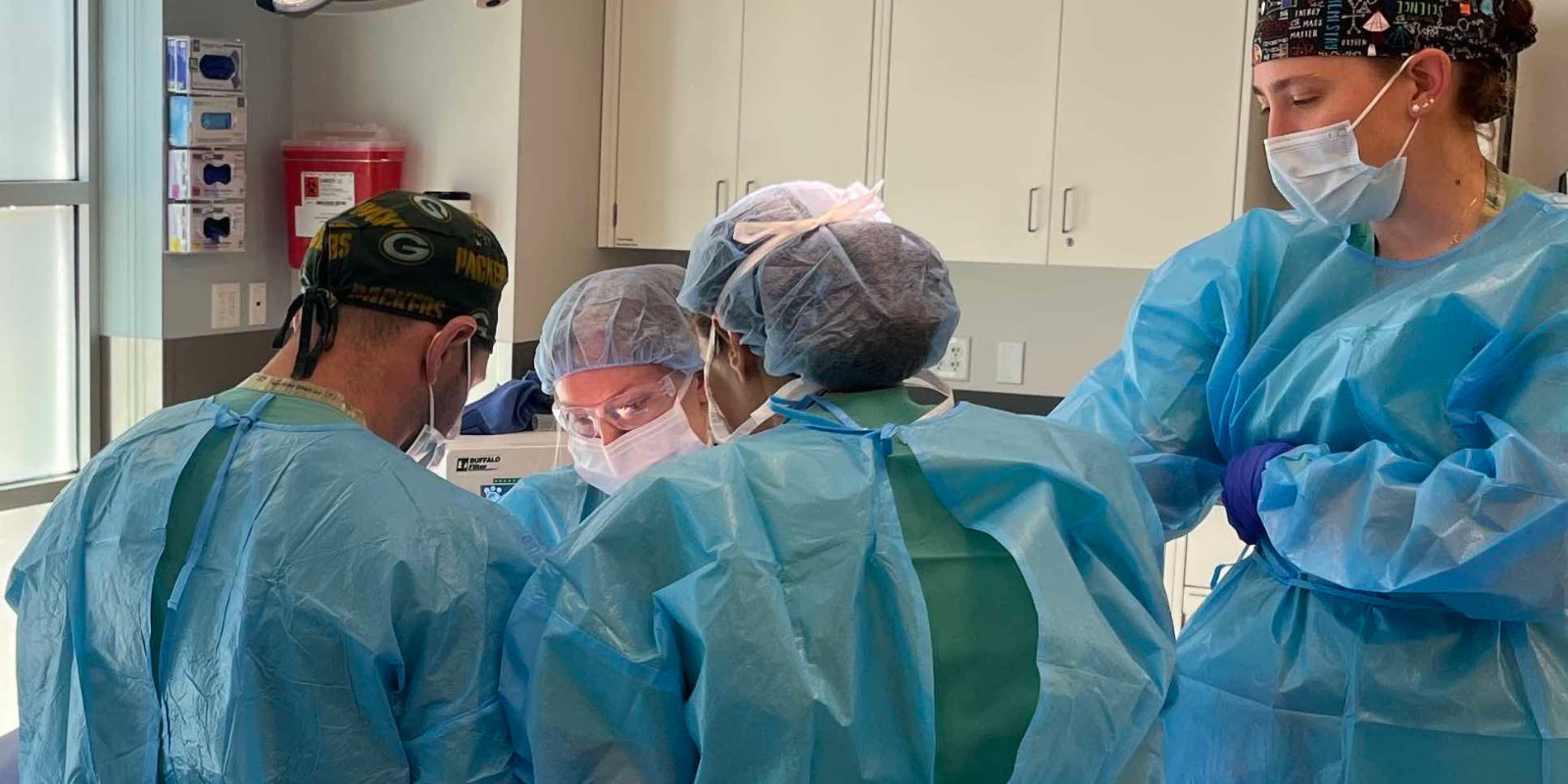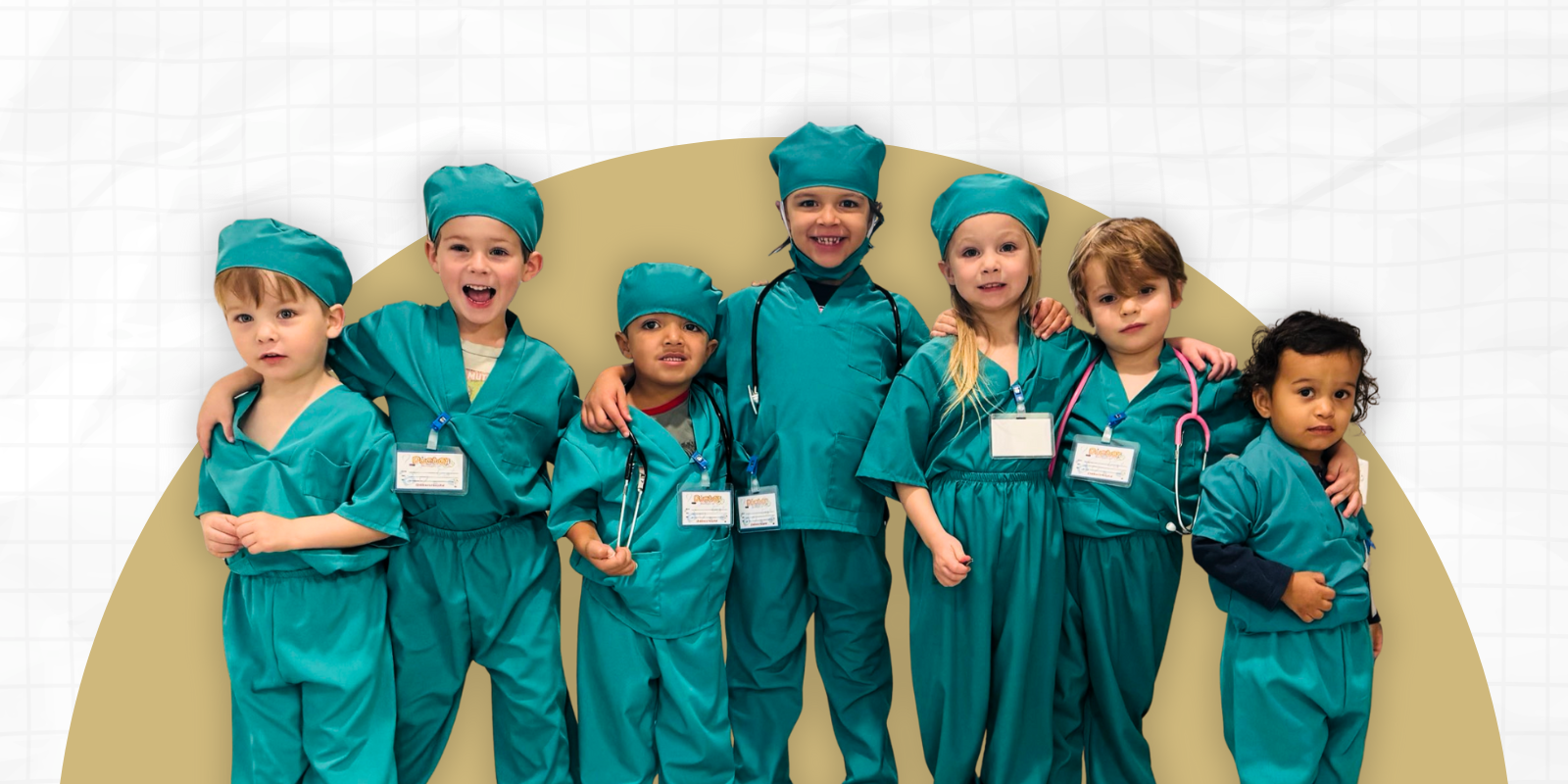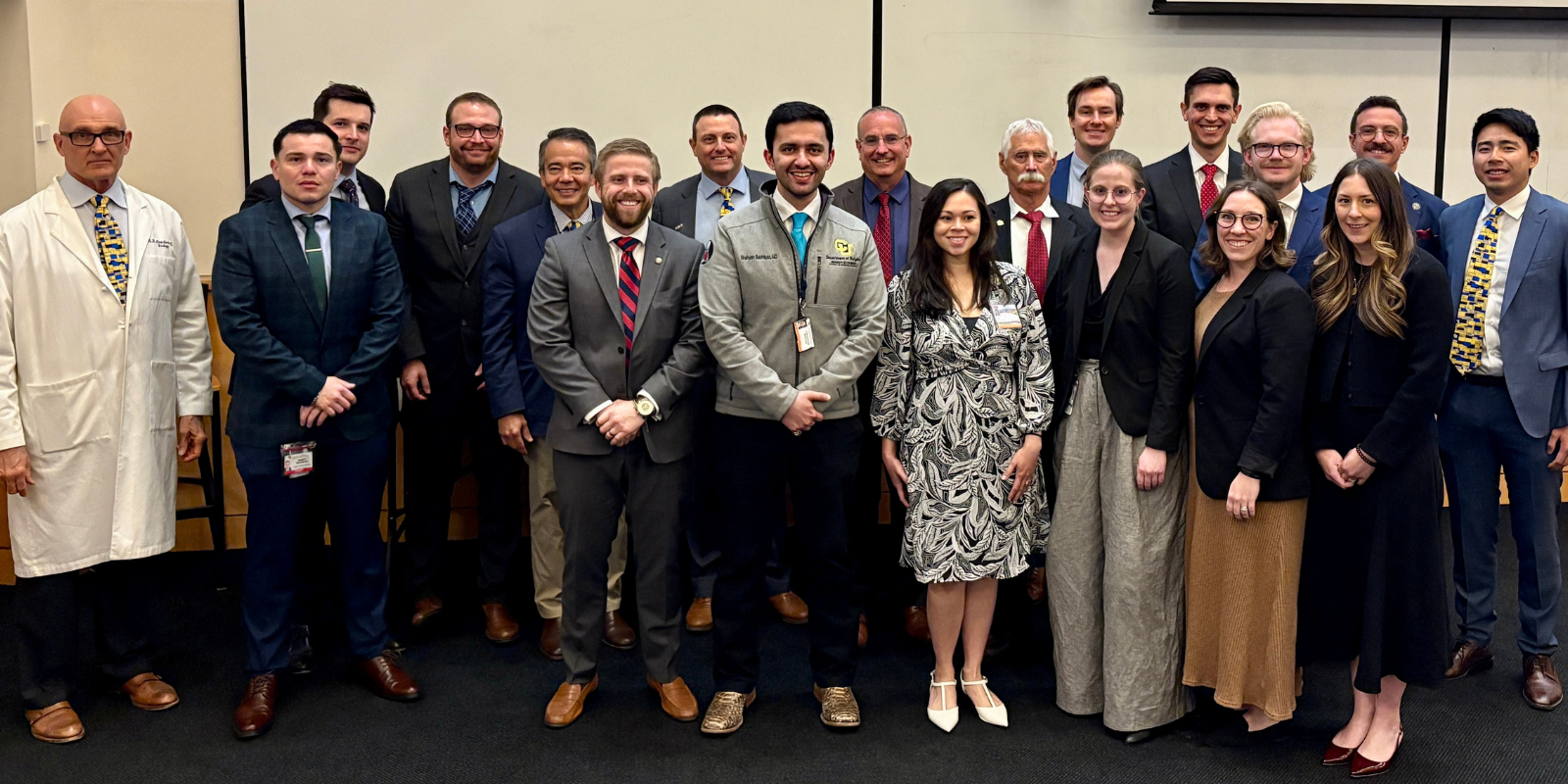In addition to the training they receive in the operating room, residents in the University of Colorado Department of Surgery also benefit from access to the Center for Surgical Innovation (CSI) on the CU Anschutz Medical Campus.
Established in 2005, the CSI is a state-of-the-art, multidisciplinary surgical education center that trains more than 5,000 medical professionals annually from across the nation and world. Founded by the CU Department of Surgery along with the departments of neurosurgery, orthopedics, otolaryngology, and obstetrics and gynecology at the CU School of Medicine, the CSI collaborates with the three Anschutz Medical Campus hospitals — UCHealth University of Colorado Hospital, Children's Hospital Colorado, and the Rocky Mountain Regional VA Medical Center — as well as medical device companies that uses CSI experts and facilities to train medical professionals on their technology.
“We are one of only nine true multidisciplinary academic bioskills labs across the nation,” says Sarah Massena, MBA, executive director of the CSI. “Sometimes a medical school will have something similar to this, but it will just be for one specialty, and they'll only be able to procure certain types of tissue.
“We also are unique because we don't receive any money from the School of Medicine,” she adds. “We generate all of our own profits from these outside companies. That revenue supplements our internal resident labs, which is very beneficial to the five member departments of CSI. The residents are able to use all this amazing equipment and not get charged very much at all.”
Tech-enabled
The CSI recently installed direct fiber-feeds to four operating rooms at UCHealth University of Colorado Hospital, providing bi-directional audio/visual capabilities that allow trainees to communicate in real time with surgeons performing live surgery across the street, while they train in concert on cadaver and animal models.
“The AV feeds were very beneficial, especially during COVID and right after,” Massena says. “People are back to training in person now, but we still have a lot of groups that want to either record the training or livestream it somewhere else.”
Trauma training
In September, a group of CU surgery residents used the CSI to train on various trauma procedures with perfused cadavers — a technology that mimics heart function and blood circulation. Residents worked on blood flow in the abdominal area, including the liver, spleen, and gallbladder.
"The perfused cadaver lab was extremely cool,” says Terry Schaid, MD, one of the residents who participated in the training. “To be able to work in a simulation setting with human anatomy that actually bleeds is a game-changer for surgical training. This particular lab also gave us the opportunity to experiment with various topical hemostatic agents and see the bleeding patterns for which they are best used.
“I scrubbed into a case after this lab and immediately used knowledge gained during the training exercise right there in the OR,” Schaid continues. “A simulation experience as advanced and useful as this is helping us become better for our patients."
Surgical resident Sudheer Vemuru, MD, echoes that sentiment, saying that, “Being able to learn about the specific uses for all of the available hemostatic agents, and being able to see the real time application of the agents to stop active bleeding, was helpful. We are very grateful to the organizers, the donor, and family of the donor for their commitment to improving patient care.”
Unique educational experience
That’s music to the ears of Massena, who has seen the CSI become a differentiator for the CU School of Medicine and the Department of Surgery.
“We've had multiple surgeons and residents come to us after the fact, saying that the reason they wanted to do their residency here or get hired at the University of Colorado is because they had access to a lab like CSI, where they can actually come and practice,” she says. “It's such an amazing environment and lab to have. People can come together and discuss a procedure, instruments, or equipment. When you’re in the OR, you're under so much stress, and you're concentrating on the patient. Here you can have a discussion and talk about, ‘Why do we put the scope here, and not here?’ It's an amazing educational experience for all involved.”
Featured image: CU Surgery residents train at the Center for Surgical Innovation in September.



